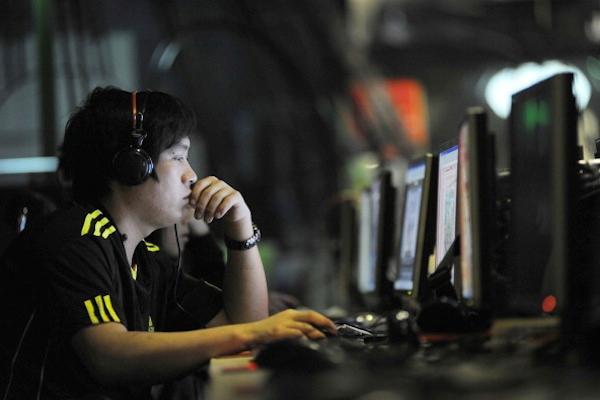It has been a matter of public knowledge – and energetic, often amusing ridicule in China – for years now that the Chinese Communist Party employs an army of Internet censors and spies to keep tabs on and control expression on the Internet.
Now the regime has admitted to employing at least two million of these personnel: the role is known as a “public opinion analyst,” and according to the regime, it’s a career path that they would like more people to embark on. Official trainings for professional public opinion analysts will be held this month, according to Chinese media.
“We mainly monitor the Internet on behalf of Party leaders,” said Shan Xuegang, deputy secretary of the regime’s Public Opinion Monitoring Office, in an interview with Beijing News. In the same interview, Beijing News, which is state controlled, disclosed the two million figure. Shan’s clients come from all levels of the Party and government, as well as state-run enterprises, Beijing News said.
The focus for public opinion monitors is now on social media: platforms like Weibo (a Twitter-like websote), the comments sections on news websites, and other fora where Chinese citizens may express themselves online. The material is compiled and then reported up the line.
Serving the Client
“Sit in front of the computer every day; input keywords set by clients; monitor negative public opinions about them; compile the information; report it to the clients,” said Tang Xiaotao, describing the job as a public opinion analyst that he held for about six months.
As well as employing their own staff, the Chinese regime also outsources surveillance functions to companies such as that Tang worked for.
The monitoring software usually costs from between 50,000 yuan ($8,000) to several million yuan; the one his company used cost three million yuan ($490,077), he said.
Armed with a sense of what the public thinks, clients – that is, Party agencies – can take countermeasures. An example, Tang said, was when the H7N9 bird flu epidemic broke out earlier this year.
“Netizens started to post about the bird flu online. So we reported that,” Tang said. “The provincial leaders thought it would have bad influence if we let the public opinion keep on going. So they decided to tell the media to limit reporting about it.”
Some companies advertise their ability to monitor the Internet 24 hours a day; others are able to delete negative opinions as soon as they appear.
Online Fury
Chinese Internet users, as would be expected, were incensed at the news. “Such action gives a lot of security to corrupt officials,” said Qia Benke. Netizens have been extremely active in uncovering and highlighting the malfeasance of Chinese officials, and such restrictions stifle such exposes, he said.
“May I ask on what law the deletion of online speech is based?” queried university instructor Zhang Bo.
He Qinglian, a Chinese economic and political commentator, wrote in a commentary in Voice of America: “The difference between this and other industries in society is that its purpose is to strengthen political control. The specialty of this industry is that it consumes social wealth, but doesn’t create any value.”
She added: “In China, these jobs are funded with taxes, but the work goes against the taxpayer.”
Comfortable Wages
Public opinion analysts are paid according to their experience, reports China Radio Network, a state mouthpiece. The lowest receive a salary of between 6,000 yuan ($980) and 8,000 yuan ($1,300) each month, the report said. That would constitute a very respectable income in most parts of China.
October training sessions, held by the People’s Daily, the Communist Party’s mouthpiece newspaper, will equip Internet monitors with ways of “analyzing and judging public opinion,” as well as “public opinion crisis management.”
Attendees will need to pass an exam before they receive their certificate and become a professional public opinion monitor.
Political Tasks
Sometimes, monitors also have their role expanded to take care of sensitive political tasks for the Communist Party, too.
In 2009, the Henan Polytechnic University wrote in training notice for its “administration and security information staff” that they had grown by fivefold — to 103 personnel since 2002 — and that their new roles included “paying very close attention” to the activities of practitioners of Falun Gong, a persecuted spiritual group, on the Internet, and recording their activities.




